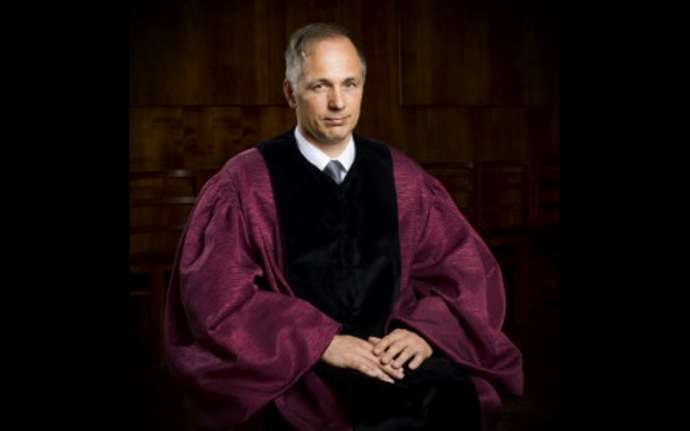STA, 9 January 2019 - After the Constitutional Court recently decreed a reform of the electoral law to re-establish the one-person-one-vote rule, the new chief justice Rajko Knez told the STA in an interview that introducing a preference vote in the general election would go in the right direction.
In its December ruling, the court declared the legislative provisions determining the size of electoral districts unconstitutional because their varying sizes meant that the votes of constituents who cast their ballots in smaller districts count more than those of constituents in larger districts.
Slovenia has ten electoral units, two of which are set aside for the Italian and Hungarian minorities to elect each their own MP. Each of the remaining eight units is divided into eleven districts to elect 88 MPs.
The court ordered the National Assembly to amend the legislation within two years. While it did not say how, the belief is the legislature may either change the sizes of the electoral districts or abolish them and introduce a preference vote at the level of the larger electoral units.
Speaking to the STA after assuming his three-year term as president of the Constitutional Court in December, Knez said it was not up to the court to say which solution would be the most suitable.
"However, introducing preference votes would go in the direction set out by the Constitutional Court because preference vote increases the individual's say on the outcome of the vote," he said, quoting a constitutional provision saying that voters should have a decisive say on which candidates get elected.
Chief Justice suggests reducing duties of the Constitutional Court to streamline its work
Knez would like for the Constitutional Court to be able to speed up processing of cases, which he says would be possible by reducing the scope of cases that the court has to admit. However, this would require amendments to the relevant law as well as to the Constitution.
"The Constitution, in Article 160, imposes a great number of responsibilities on the Constitutional Court, something that is perceived as peculiar by some of our colleagues abroad. It would be worth considering amending the article, or reinforce the court's staffing.
"One possible solution would be to limit constitutional appeals against court decisions to decisions of only certain courts, for example to those of the Supreme Court or those of the Administrative Court, as is the case in Austria."
However, Knez is somewhat reserved about the idea that Constitutional Court judges should be given the discretion to choose themselves which cases they would hear and which not.
Knez has already talked to Prime Minister Marjan Šarec about the need for changes and he says Šarec was open to suggestions, but no concrete steps have been taken yet. "I'd like for the government and parliament to hear us. Data on court case resolution time and the growing caseload call for action."
One of the things the court is deliberating on at the moment is whether to step up sanctions for the failure to implement the late-2014 ruling decreeing full state funding for private primary schools with publicly-approved curricula.
The National Assembly has already sent in its response, which means the case may be prepared for deliberation at a Constitutional Court's session, but Knez could not say when this will happen, because much depends on the rapporteur judge responsible for the case, but the matter is treated as an absolute priority.
The appearance of impartiality must be preserved
Knez, who has served as a judge on the Constitutional Court since April 2017, is not opposed to public appearances by judges, but advises restraint and preserving the image of impartiality, something that he believes judges stick to.
"We are as a rule careful where to appear and what to say, which is right," Knez says, so he does not see the need to place any additional restrictions on public appearances.
Asked to comment on an opinion aired by former Constitutional Court president Miroslav Mozetič about declining democracy and rule of law in the country, Knez said that he believed Slovenia to be a law-governed country.
"We can talk about whether there's more or less rule of law, but the fact is that mistakes also happen in older democracies," Knez said although this does not justify systemic mistakes.
Slovenia’s young legal system is a work in progress
In cases he has encountered so far Knez as a rule has not come across obvious or intentional abuse of the Constitution in decision-making, but there are "often mere nuances in understanding constitutional norms".
If there are violations, the reason may be legislation, legal voids. "We started building the Slovenian legal system only 28 years ago, which is a relatively short period of time. In 1997 we started adapting to the European system (...) Given the circumstances, it would be an illusion to expect nothing would go wrong."
Knez supports the introduction of a trial term for judges and conditionally also the transfer of appointments of judges from parliament to the Judicial Council, both of which are planned for this year, but he opposes limiting judges' terms once they are awarded a life-long tenure.
To prevent the judiciary shutting itself in when appointments are taken to the Judicial Council, Knez proposes fully professionalising the body and enhancing its independence by appointing relevant external members.
"Every system that within its frameworks functions as its own master may go awry in the long run, getting entangled in its own paradoxes and partial interests," the justice warns.







